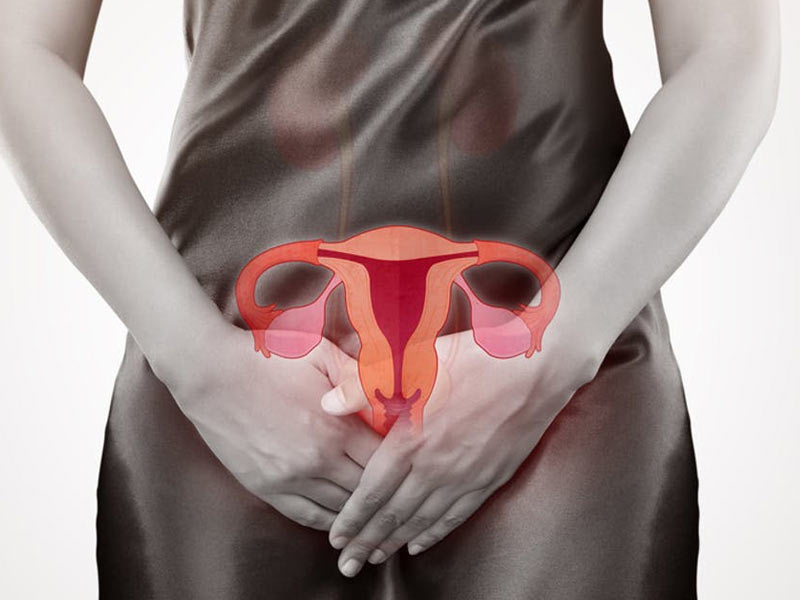
Vagina is one of the most important parts of a woman’s reproductive system which is a passage in the women’s body that connects outer sexual organs to the womb in which the baby grows. Where vagina is one of the most important parts of a woman’s reproductive system, you would be surprised to know that some women are actually born without a vagina or uterus. This condition is known as the Mayer Rokitansky Kuster Hauser syndrome or the MRKH syndrome. Also known as vaginal agenesis, MRKH syndrome is a condition in which a young woman is either born without vagina or uterus or has an underdeveloped vagina and uterus. Women with this condition have a normal extended genitalia with a 1 to 3 centimeters of vaginal opening known as the vaginal dimple. Where the ovaries of these tend to function normally, it is the internal genitalia that generally has no uterus or vagina or consists of partially developed vagina.
Table of Content:-
Many women suffering from MRKH syndrome have a genital malformations that they only become aware of as they fail to get their menstrual periods. Let us take a deep dive into this article and learn more about the MRKH syndrome, its symptoms and the way in which this condition can be treated with Dr. Aditi Tandon, Obstetrician Gynecologist, Fertility Specialist, Maniac Laparoscopic Surgeon, Sudha Tandon Fertility, IVF & Endoscopy Center.
What is MRKH Syndrome?

Image Credits- Babygest
Also Read: Born With Half Uterus? Know Everything About Unicornuate Uterus From The Expert
Also known as the Vaginal Agenesis, MRKH Syndrome or Mayer Rokitansky Kuster Hauser syndrome is a condition due to which young girls are either born without a vagina and uterus or have a partially developed vagina and uterus. Agenesis is a Latin word which refers to not developed and hence this condition can simply be understood as non developed or of an underdeveloped vagina. Where the outer genitalia of these women is completely normal and they also have normally functioning ovaries. It is the internal genitalia that generally has no uterus or vagina or consists of partially developed vagina. Most of the women suffering from this condition have a malformation in their genitals which they only get to know about as they fail to get their menstrual periods or as they fail to have a vaginal intercourse. In some rare cases of the MRKH syndrome, some women do not have a properly developed heart, kidneys, skeleton or the urinary tract.
It has been hypothesized that MRKH syndrome is a disorder that runs in families and gets passed on from one generation to the other.
Types of MRKH Syndrome
As by now we are well aware of what MRKH syndrome is, how it affects a person and ways in which a woman might get to know that she is suffering from this particular condition. Let us take a look at some of the different types of this condition that a person can get affected with. The MRKH syndrome is categorized into two types, MRKH Type 1 and MRKH Type 2.
- MRKH Type 1- The most well known type of the MRKH syndrome that is also known as the Rokitansky sequence, the type 1 MRKH is a condition where a woman usually has a blocked or missing vagina and uterus along with properly functioning fallopian tubes.
- MRKH Type 2- Type 2 MRKH is also known as the MURCS association which stands for Mullerian duct aplasia renal dysplasia and cervical somite anomalies. This condition is not just limited to the vagina and uterus problems but tends to affect other parts and organs such as the kidneys, urinary tract and the musculoskeletal system.
Symptoms of MRKH Syndrome
Let us take a step ahead and learn about some of the common signs and symptoms that are observed in women suffering from MRKH Type 1 and MRKH Type 2 syndrome-
- Reduced vaginal depth
- Minor hearing loss
- Abnormal kidney formation
- Heart defects
- Skeletal abnormalities
- Issues related to the urinary tract
- Missing Kidney
- Difficult or painful sexual intercourse
Treatment for MRKH Syndrome
View this post on Instagram
Also Read: Check Out These Home Remedies For Vaginal Hygiene
It might come as a surprise to many people how a woman can be born without a vaginal cavity but the good news is that this condition of absent or underdeveloped vagina can actually be treated. The condition of Vaginal Agenesis can be treated with surgical and non-surgical means with the help of dilation techniques. This condition can be treated with the help of a Vaginoplasty surgery that is a Laparoscopic Peritoneal Pull through. This technique covers the vagina with peritoneal flaps. By using this method a nw vagina is created for normal sexual functioning. So that the women suffering from the condition of MRKH syndrome can have their own biological child by the means of IVF or surrogacy.
(This article is based upon a post by Dr. Aditi Tandon, Obstetrician Gynecologist, Fertility Specialist, Maniac Laparoscopic Surgeon, Sudha Tandon Fertility, IVF & Endoscopy Center on her instagram handle)
Also watch this video
How we keep this article up to date:
We work with experts and keep a close eye on the latest in health and wellness. Whenever there is a new research or helpful information, we update our articles with accurate and useful advice.
Current Version
